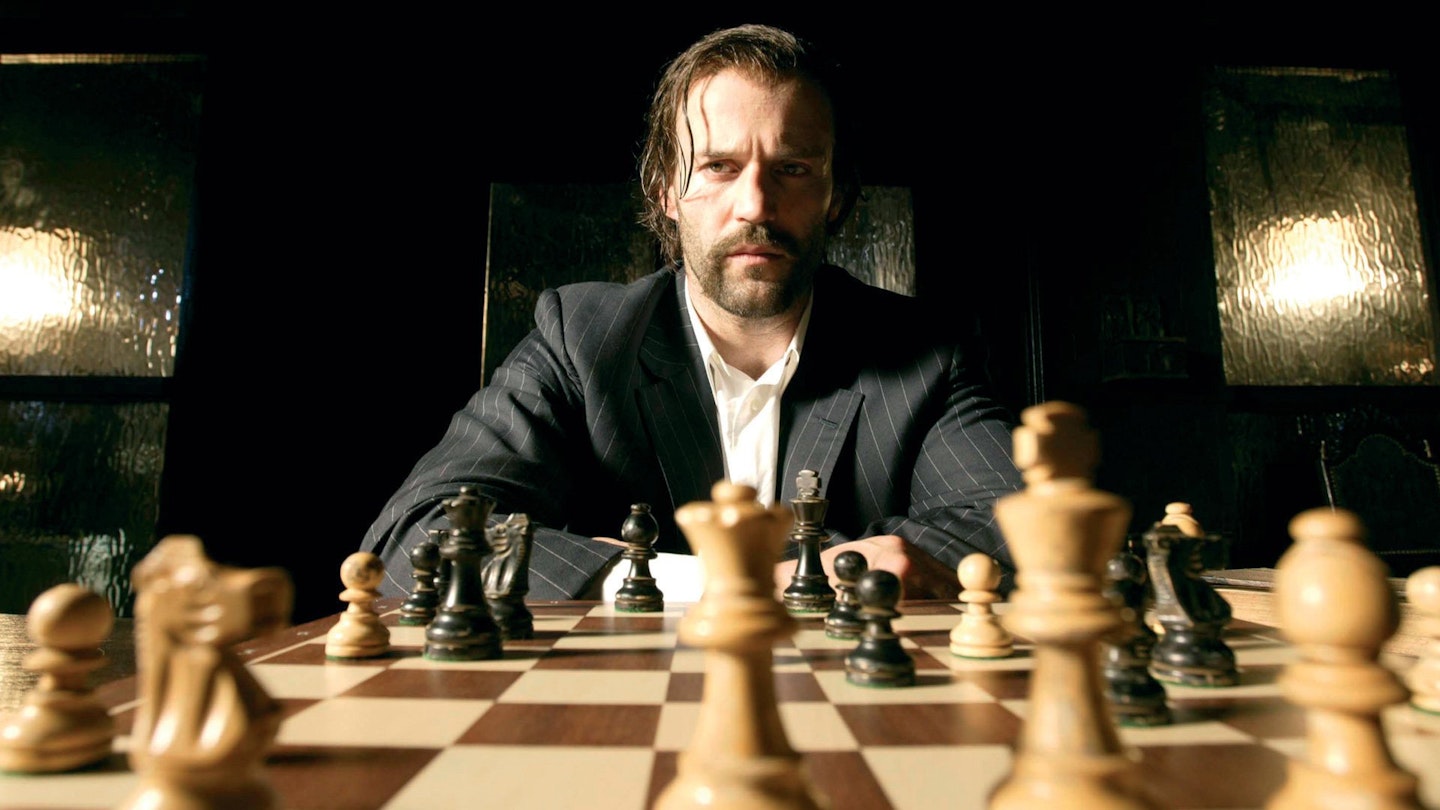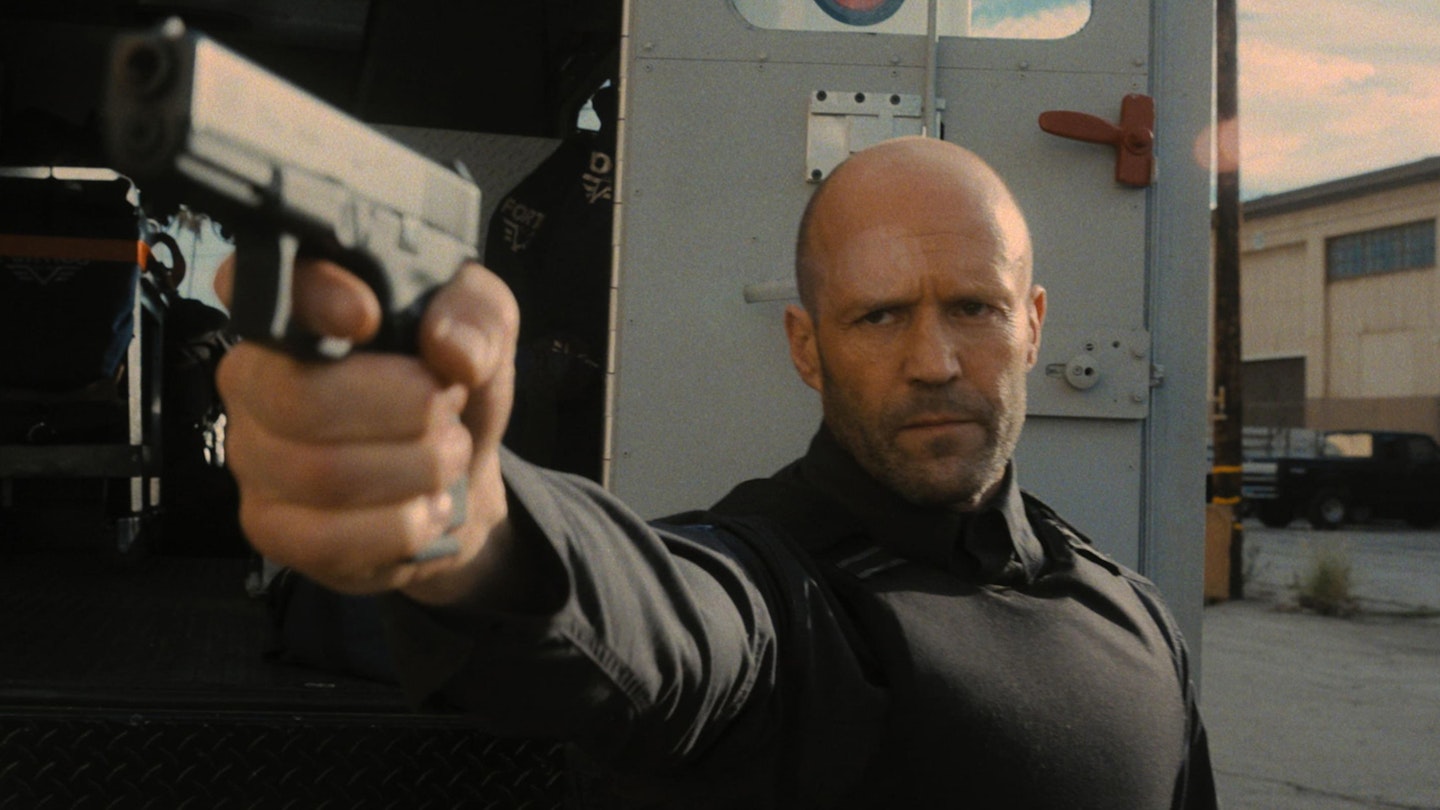On the face of it – well, if you believe the movie posters, anyway – Guy Ritchie’s returned to his comfort zone with Revolver, after a disastrous sojourn beyond very edge of credibility with 2002’s Swept Away (winner of five Razzies). Revolver’s populated with the same breed of fast-talking, sharp-suited criminal that entertained so many of us in Lock, Stock and Snatch, the story hinges on gambles and cons and the violence is strong and stylish. Plus, of course, Ritchie’s favourite leading man, Jason ‘Transporter’ Statham is back, too, albeit with the kind of hair/’tache combo that makes him look like an extra in a Spaghetti Western.
Good news, no? Wellll… The first warning sign comes with an opening quote from Julius Caesar. Followed by another from the Fundamentals Of Chess. Then another from a business guide. And then, just for good measure, a final one from Machiavelli. Some of which are repeated later in the movie, just in case you missed them first time around. He’s been doing a lot of reading, that Guy Ritchie. Yup, he’s certainly been filling his head with some very complex ideas, and has admitted even he found it tough to weave them all together and turn them into his Revolver script – a process that took him 18 months.
Problem is, he spectacularly fails to communicate exactly what those ideas are. It’s all got something to do with the con as a game – one that also follows the rules of business – and the importance of knowing who your worst opponent/enemy is. Or understanding that your worst enemy is actually you. And convincing them/you that they’re/you’re not. Or really are. Or something.
It kicks off intriguingly enough with no doubt deliberate echoes of The Usual Suspects (via repeated references to a Keyser Soze-esque underworld phantom), introducing us to some fun, skewed characters, like André Benjamin’s chess-dabbling loan shark and Mark Strong’s stuttering, balding hitman. But it’s not long before an overload of red herrings start stinking up a show already hindered by Statham’s overused voiceover, Ritchie’s tiresomely tricksy editing and Ray Liotta’s seeming desire to shout himself to death. By the final act, all pretense at logic is shrugged off, Revolver’s plotline contorting itself into the cinematic equivalent of a scribble on a maze in a child’s puzzle book. You’d do better to skip attempting this conundrum and stick with your Su Doku.


